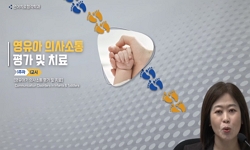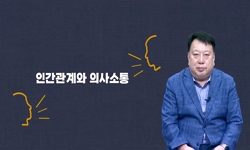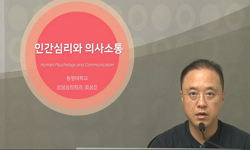This study aims to look at the adaptability on the linguistic culture of Japanese&Chinese marriage immigrant females by comparing their lives with Korean females, especially focused on understanding their meaning behind expression of meal invitations....
http://chineseinput.net/에서 pinyin(병음)방식으로 중국어를 변환할 수 있습니다.
변환된 중국어를 복사하여 사용하시면 됩니다.
- 中文 을 입력하시려면 zhongwen을 입력하시고 space를누르시면됩니다.
- 北京 을 입력하시려면 beijing을 입력하시고 space를 누르시면 됩니다.

식사권유 표현에 관한 연구 -한국여성, 일본· 중국출신 여성결혼이민자를 중심으로- = A Study on Expressions of Meal Invitations -Focused on Korean Females and Japanese&Chinese Marriage Immigrant Females-
한글로보기https://www.riss.kr/link?id=A103773508
- 저자
- 발행기관
- 학술지명
- 권호사항
-
발행연도
2015
-
작성언어
Korean
- 주제어
-
등재정보
KCI등재
-
자료형태
학술저널
-
수록면
109-128(20쪽)
-
KCI 피인용횟수
0
- 제공처
-
0
상세조회 -
0
다운로드
부가정보
다국어 초록 (Multilingual Abstract)
In the case of Korean females, when they invited someone to a meal saying 'let's have something to eat', the true meaning behind it was a「formal courteous greeting」, whereas when they were invited to a meal, they thought 「the other person wants to ask a favor」meaning the meal was in return of a future favor. Japanese females equally reported the reasons behind sending such invitations as a meaning of 「when they truly want to have a meal together」and「when they want to express gratitude」. However, when they received such invitations, they thought it was a「formal courteous greeting」. Chinese females reported to use and perceive such invitations only in the case of 「when they truly want to have a meal together」Through this research, it has been identified that cultural difference exist even in understanding a sentence. Therefore, this should be used an opportunity to introduce the "Tandem" education methods to understand and accept the culture differences among each other.
This study aims to look at the adaptability on the linguistic culture of Japanese&Chinese marriage immigrant females by comparing their lives with Korean females, especially focused on understanding their meaning behind expression of meal invitations. The purpose of this study is to examine how well the Japanese and Chinese females understand the Korean language culture, in the sense how Korean society is used to saying, 'let's have a meal together' as an ordinary expression of a greeting.
In the case of Korean females, when they invited someone to a meal saying 'let's have something to eat', the true meaning behind it was a「formal courteous greeting」, whereas when they were invited to a meal, they thought 「the other person wants to ask a favor」meaning the meal was in return of a future favor. Japanese females equally reported the reasons behind sending such invitations as a meaning of 「when they truly want to have a meal together」and「when they want to express gratitude」. However, when they received such invitations, they thought it was a「formal courteous greeting」. Chinese females reported to use and perceive such invitations only in the case of 「when they truly want to have a meal together」Through this research, it has been identified that cultural difference exist even in understanding a sentence. Therefore, this should be used an opportunity to introduce the "Tandem" education methods to understand and accept the culture differences among each other.
참고문헌 (Reference)
1 박영순, "학습자 언어와 한국어 교육" 12 (12): 1-28, 2001
2 조선일보, "칼럼"
3 임춘희, "중국인 유학생의 대학생활문화에서의 스트레스와 적응" 한국생활과학회 18 (18): 93-112, 2009
4 황지인, "재한 중국 유학생의 문화적응 스트레스와 대학생활 적응간의 관계" 원광대학교대학원 2009
5 와타나베 요시야스, "일본인 한국어 학습자의 문화 적응에 관한 연구" 연세대학교 대학원 2002
6 세계일보, "외국인 새댁의 적응 리포트"
7 정경운, "여성결혼이민자의 문화적응과 언어 문제" 연세대학교 언어연구교육원 한국어학당 34 : 89-111, 2009
8 김혜련, "사회문화적 능력과 언어전이-한국어와 영어에서의 사과의 경우" 한국사회언어학회 5 (5): 191-219, 1997
9 HIRANAKAYUKARI, "다문화사회에서의 Tandem학습 도입의 가능성 - 한국어-일본어 Tandem수업 사례를 통하여 -" 동남어문학회 1 (1): 77-95, 2012
10 임근영, "국내 거주 외국인의 한국문화적응 스트레스가 한국어 학습에 미치는 영향" 청주대학교대학원 2008
1 박영순, "학습자 언어와 한국어 교육" 12 (12): 1-28, 2001
2 조선일보, "칼럼"
3 임춘희, "중국인 유학생의 대학생활문화에서의 스트레스와 적응" 한국생활과학회 18 (18): 93-112, 2009
4 황지인, "재한 중국 유학생의 문화적응 스트레스와 대학생활 적응간의 관계" 원광대학교대학원 2009
5 와타나베 요시야스, "일본인 한국어 학습자의 문화 적응에 관한 연구" 연세대학교 대학원 2002
6 세계일보, "외국인 새댁의 적응 리포트"
7 정경운, "여성결혼이민자의 문화적응과 언어 문제" 연세대학교 언어연구교육원 한국어학당 34 : 89-111, 2009
8 김혜련, "사회문화적 능력과 언어전이-한국어와 영어에서의 사과의 경우" 한국사회언어학회 5 (5): 191-219, 1997
9 HIRANAKAYUKARI, "다문화사회에서의 Tandem학습 도입의 가능성 - 한국어-일본어 Tandem수업 사례를 통하여 -" 동남어문학회 1 (1): 77-95, 2012
10 임근영, "국내 거주 외국인의 한국문화적응 스트레스가 한국어 학습에 미치는 영향" 청주대학교대학원 2008
11 뤼우진루, "『중국문화 시리즈 3-음식:중국문화』 대가" 구선심 2008
12 Wolfson, N., "Perspectives; Sociolinguistics and TESOL" Newbury House 1989
동일학술지(권/호) 다른 논문
-
- 중앙대학교 일본연구소
- 김난희
- 2015
- KCI등재
-
- 중앙대학교 일본연구소
- 김미옥
- 2015
- KCI등재
-
- 중앙대학교 일본연구소
- 김옥희
- 2015
- KCI등재
-
- 중앙대학교 일본연구소
- 김일도
- 2015
- KCI등재
분석정보
인용정보 인용지수 설명보기
학술지 이력
| 연월일 | 이력구분 | 이력상세 | 등재구분 |
|---|---|---|---|
| 2026 | 평가예정 | 재인증평가 신청대상 (재인증) | |
| 2020-01-01 | 평가 | 등재학술지 유지 (재인증) |  |
| 2017-01-01 | 평가 | 등재학술지 유지 (계속평가) |  |
| 2013-01-01 | 평가 | 등재 1차 FAIL (등재유지) |  |
| 2010-06-14 | 학술지명변경 | 외국어명 : 미등록 -> 日本硏究 |  |
| 2010-01-01 | 평가 | 등재학술지 선정 (등재후보2차) |  |
| 2009-01-01 | 평가 | 등재후보 1차 PASS (등재후보1차) |  |
| 2007-01-01 | 평가 | 등재후보학술지 선정 (신규평가) |  |
학술지 인용정보
| 기준연도 | WOS-KCI 통합IF(2년) | KCIF(2년) | KCIF(3년) |
|---|---|---|---|
| 2016 | 0.41 | 0.41 | 0.34 |
| KCIF(4년) | KCIF(5년) | 중심성지수(3년) | 즉시성지수 |
| 0.31 | 0.28 | 0.746 | 0.06 |




 KCI
KCI






